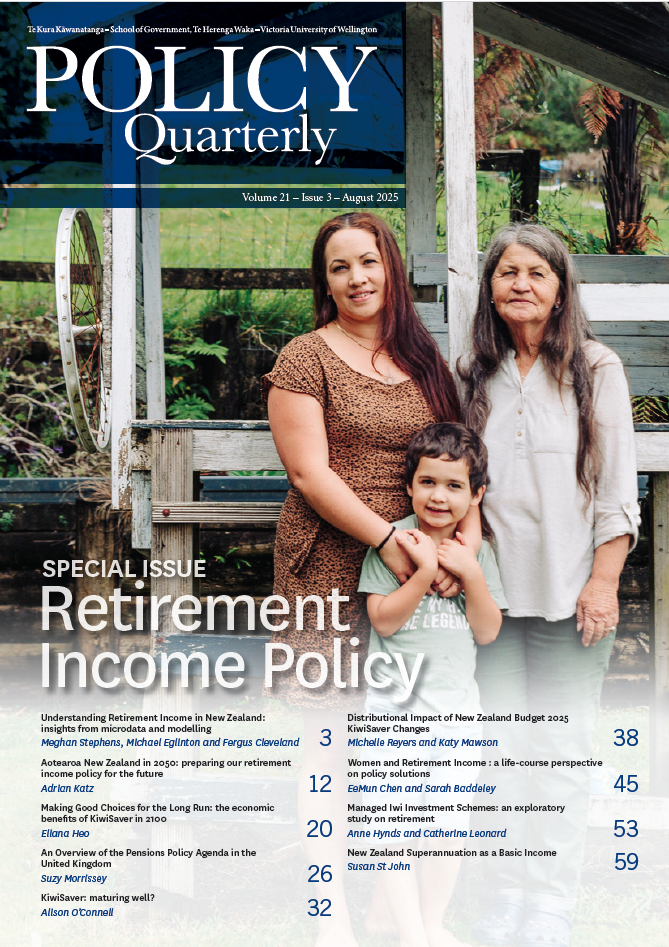Making Good Choices for the Long Run: the economic benefits of KiwiSaver in 2100
DOI:
https://doi.org/10.26686/pq.v21i3.9934Keywords:
Kiwisaver, retirement policy, economic resilience, intergenerational equity, national savings, long-term stewardship, coordination policyAbstract
As New Zealand faces the challenges of an ageing population and widening inequality, it is useful to ask: what is the long-run economic role of KiwiSaver, is it an inclusive institution, and how can it be strengthened for future generations? This article explores the economic benefits of KiwiSaver beyond individual retirement outcomes in the future. It examines whether KiwiSaver contributes to national savings, reduces long-term fiscal pressures, and supports intergenerational inequality by promoting early asset-building.
Considering case studies from Singapore, Australia and the Netherlands, the article highlights how starting earlier, contributing more and investing better can build economic resilience, increase capital accumulation, and reduce social polarisation by supporting intergenerational equity. The findings of this research and focus on the need for long-term stewardship allows us to think deeply about how today’s contributions to KiwiSaver can shape a better future for the younger generations in the year 2100.
Downloads
Downloads
Published
Issue
Section
License
Permission: In the interest of promoting debate and wider dissemination, the IGPS encourages use of all or part of the articles appearing in PQ, where there is no element of commercial gain. Appropriate acknowledgement of both author and source should be made in all cases. Please direct requests for permission to reprint articles from this publication to Policy-Quarterly@vuw.ac.nz.



